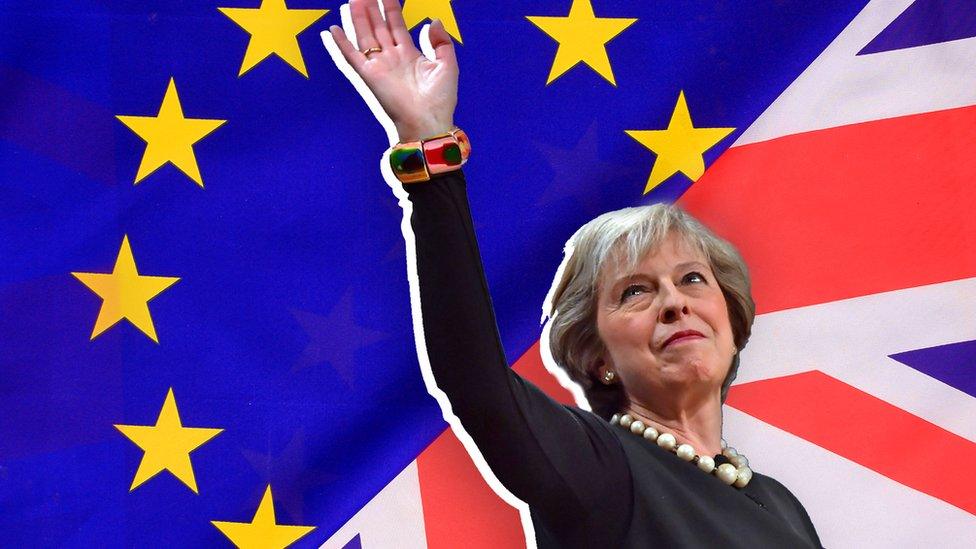Why has Brexit taken so long?
- Published
- comments

Prime Minister Theresa May has not ruled out extra time to negotiate Britain's exit from the EU.
Brexit - Britain's exit from the European Union - could take longer than planned.
In a referendum in 2016, the United Kingdom voted to leave the EU and since then there have been lots of debates to figure out exactly how the country can do that.
The UK was due to leave in March 2019 but now No. 10 Downing Street has confirmed that extended negotiations with the European Union would not be ruled out.
Negotiations between the UK and the EU have reached a deadlock recently - with neither side willing to budge on key issues.
Article 50 in 50 seconds: What happens now?
Once Article 50 was triggered in March 2017, they had two years to come up with a deal to leave the European Union.
This was to decide the UK's new rules outside of the EU, in particular for things like trade and immigration.
However, if the UK's transition is extended for another year, it could be the that the UK would not officially leave the European Union until the end of 2021.
If there is an extension, that means that the UK will still need to pay the EU money and follow its rules for longer.
PM Theresa May is struggling to manage negotiations with the EU along with the different expectations of her own party
This has upset lots of MPs who support Brexit, who feel that the UK should not have to stay longer in the EU than necessary.
But other MPs might welcome the opportunity to talk about the exit further, particularly if it means avoiding a 'no deal' situation.
- Published16 October 2018
- Published17 September 2018
- Published29 March 2017
- Published21 September 2018
